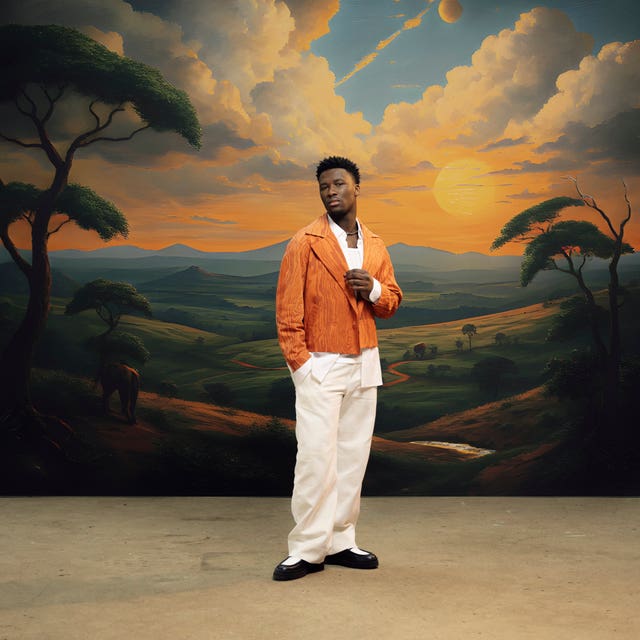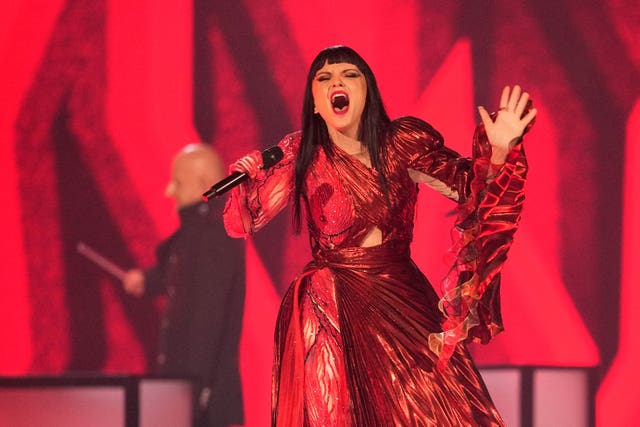Dutch hope to make Eurovision final after last year’s disqualification
They have placed their hopes for Tuesday’s semi-final in Basel, Switzerland, on 21-year-old singer Claude Kiambe.

The Netherlands returns to perform at the Eurovision Song Contest after their act was kicked out of the competition shortly before the final last year.
They have placed their hopes for Tuesday’s first semi-final in Basel, Switzerland, on Claude Kiambe, 21, whose entry C’est La Vie reflects on his early musical aspirations and his mother’s support.
He will compete against Sweden representatives and contest favourites KAJ with the upbeat comical Bara Bada Bastu (Just Sauna), inspired by the Nordic sauna culture, and Ukrainian group Ziferblat’s dramatic track Bird Of Pray.
Basel-born Zoe Me will perform French language song Voyage for the Swiss but is already through to the final, because Nemo won in Malmo 2024 with The Code, along with some of the big financial contributors – Italy with glam rocker Lucio Corsi’s Volevo Essere Un Duro (I Wanted To Be A Tough Guy) and Spain with Melody Gutierrez’s Esa Diva (That Diva).

Kiambe is seen as among those in contention for the top prize on Saturday, and is already a star of the Dutch charts, with the release of his 2022 debut single Ladada (Mon Dernier Mot), which has had more than 60 million listens on Spotify and which prompted him to leave his restaurant job.
Kiambe told the PA news agency that he hopes to see Joost Klein, who was disqualified by the European Broadcasting Union (EBU) over alleged verbal threats to a female production worker, “doing great and doing the best”, after his song Europapa went viral.
Dutch broadcaster Avrotros called the disqualification “unnecessary and disproportionate”, while the singer denied any wrongdoing, and Swedish prosecutors dropped the case against him.
Avrotros also warned that it might not return to the competition, but after a meeting with the EBU to discuss the disqualification and backstage issues, it appears they have returned to the fold.
The EBU conducted a review and pledged that a new code of conduct and a raft of new measures, would help “protect” the wellbeing of artists.
Kiambe feels this means they have “listened to everything what happened”.
However, Avrotros did reportedly ask the EBU to rethink its policy on an on-stage LGBT+ flag ban for contestants, although fans are allowed to bring in these symbols along with pro-Palestinian flags – after controversy last year on what could be brought into the arena.
Also in the line-up for the first semi-final is Slovenia’s Klemen with How Much Time Do We Have Left, electronic musician brothers Matthias Davio Matthiasson and Halfdan Helgi Matthiasson who formed Vaeb and are entering with the futuristic Roa, and Estonia’s Tommy Cash with the absurd Espresso Macchiato.
Others who are thought likely to make strong showing on Tuesday are San Marino’s Gabry Ponte with the catchy beat heavy Tutta L’Italia, Poland’s Justyna Steczkowska with her dramatic Gaja, Norway’s Kyle Alessandro with the fiery Lighter, Cyprus’ Theo Evan’s blend of singing and spoken word in Shh and Albania’s folksy Shkodra Elektronike with Zjerm.

After the public voting, the top 10 countries going through to the final will be announced. They will join the “big five” and Switzerland on Saturday.
On Thursday the UK’s girl group Remember Monday, Ireland’s Emmy Kristiansen and Israeli singer Yuval Raphael, a survivor of the October 7 2023 Hamas attacks, will take to the stage in the second semi-final.
There are expected to be protests throughout the week, and a pro-Palestinian group is planning a large gathering for Saturday amid the war in Gaza.
More than 1,000 police officers are on duty in Basel this week, and there has been an increase in security during Eurovision.
Eurovision’s semi-finals will air on Tuesday and Thursday on the BBC from 8pm UK time, and the final at the same time on Saturday.





